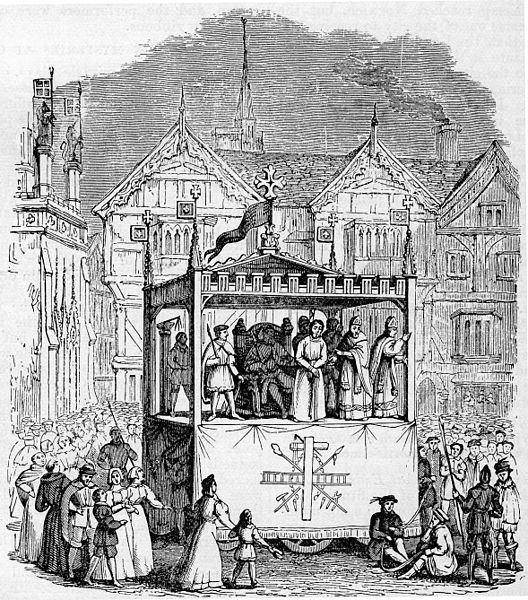Society for the Reformation of Manners
The Society for the Reformation of Manners was founded in the Tower Hamlets area of London in 1691. Its aims were the suppression of profanity, immorality, and other lewd activities in general, and of brothels and prostitution in particular. The society flourished until the 1730s and was briefly revived during 1757.
An account of the Societies for Reformation of Manners, 1700.
"A woman of all trades from Covent Garden". The caption on this engraving is a euphemism for a prostitute
Antitheatricality is any form of opposition or hostility to theater. Such opposition is as old as theater itself, suggesting a deep-seated ambivalence in human nature about the dramatic arts. Jonas Barish's 1981 book, The Antitheatrical Prejudice, was, according to one of his Berkeley colleagues, immediately recognized as having given intellectual and historical definition to a phenomenon which up to that point had been only dimly observed and understood. The book earned the American Theater Association's Barnard Hewitt Award for outstanding research in theater history. Barish and some more recent commentators treat the anti-theatrical, not as an enemy to be overcome, but rather as an inevitable and valuable part of the theatrical dynamic.
Royalty Theatre, London – changing fashions
Plato, theater's first critic
Tertullian, second century Christian teacher and critic of theater
Engraving depicting an early Chester mystery play






